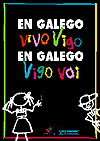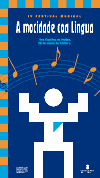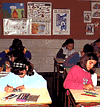| Schools The first step taken in this field was the introduction of Galician as a subject on the curriculum in 1979, during the pre-autonomous stage. However, studying Galician does not guarantee galician children's ability in and acquisition of the language. It helps, in fact, but full-ability is only acquired when the language is used in several communicative contexts. When the LOXSE (Law for the General Organisation of the Educational System) was put into effect, Galician educational bodies were forced to adjust its legislation to the new framework. The decree 247/1995 details through its first article the use of Galician by the educational administration in Galicia. The concern for normalization requires not only the compulsory use of the language but also that this use must be promoted by all kinds of actions: documents concerning internal functioning of the school, certificates, minutes, timetables, reports, signs..., and in communications with public, private and administrative bodies. The introduction of Galician as a normal language in education is regulated throughout the second chapter of the decree. At pre-school level, girls and boys are taught in the predominant mother tongue though the study of the other official language is at no time neglected. The decree provides that individual assistance must be given to those pupils who have not enough knowledge of the prevailing language. A defined number of subjects is to be imparted in the Galician language at all pre-university levels. This number changes according to the level of education. At obligatory school these subjects are social science and natural science, among the optional ones enviromental and health sciences are to be carried out in Galician. At school level, phisolosophy, several specialistic subjects and some optional ones are to be taught in Galician. At professional education levels those subjects which are more oriented towards the integration of the pupils in the labour market are also carried out in Galician. If the introduction of Galician into different classes is necessary, the training of teachers in Galician is equally necessary because teachers are the models for imitation by the young. All schools should have a team in charge of linguistic normalization coordinating the activities of all the members of the school or educational centre, fulfilling the terms of the Law for Linguistic Normalization in the school and encouraging normalization activities involving all the sectors of the educational community and, in general, encouraging the use of the vernacular. Meetings should be held for the teams of the different schools in each district, together with the coordinator of each centre. These teams should give impetus to and assist in those teaching activities where the use of Galician is to be encouraged and participate in meetings, study sessions and seminars where the different experiences can be discussed. Courses in the Galician language at beginner, improver and specialist levels have been held for years now, since normalization must go hand in hand with a concern for mastery of the language. Other normalization activities are also promoted: text books are published, additional teaching material is produced such as teaching units, videos, model surveys, etc., and grants have been provided for scientific research programmes in the field of Galician language and culture for school and educational centres. Another type of aid in which both staff and pupils work together is that for the promotion of school publications and radio in pre-university centres. The entry into force of the Law for the General Organisation of the Educational System requires research and adaptation to the new systems by means of teacher training courses, new curriculums, etc. which have used Galician from the start as the means of expression. The actions involving the school sector do not neglect the parents, who are a key factor in the oral transmission of the language. Parents' associations were created trying to break with the discrimination of Galician in the educational field, such as the well-known association, APADEL or the one promoted by the Mesa pola Normalización Lingüística. |
 Normalization of Galician in the field of education involves all the sectors from pupils to staff.  A Normalization team in each centre will be responsible for laying down guidelines on the normalization and use of Galician.  The only way to guarantee that all pupils are equally competent in Galician is to encourage both the study and the actual use of our language. |
Back to education